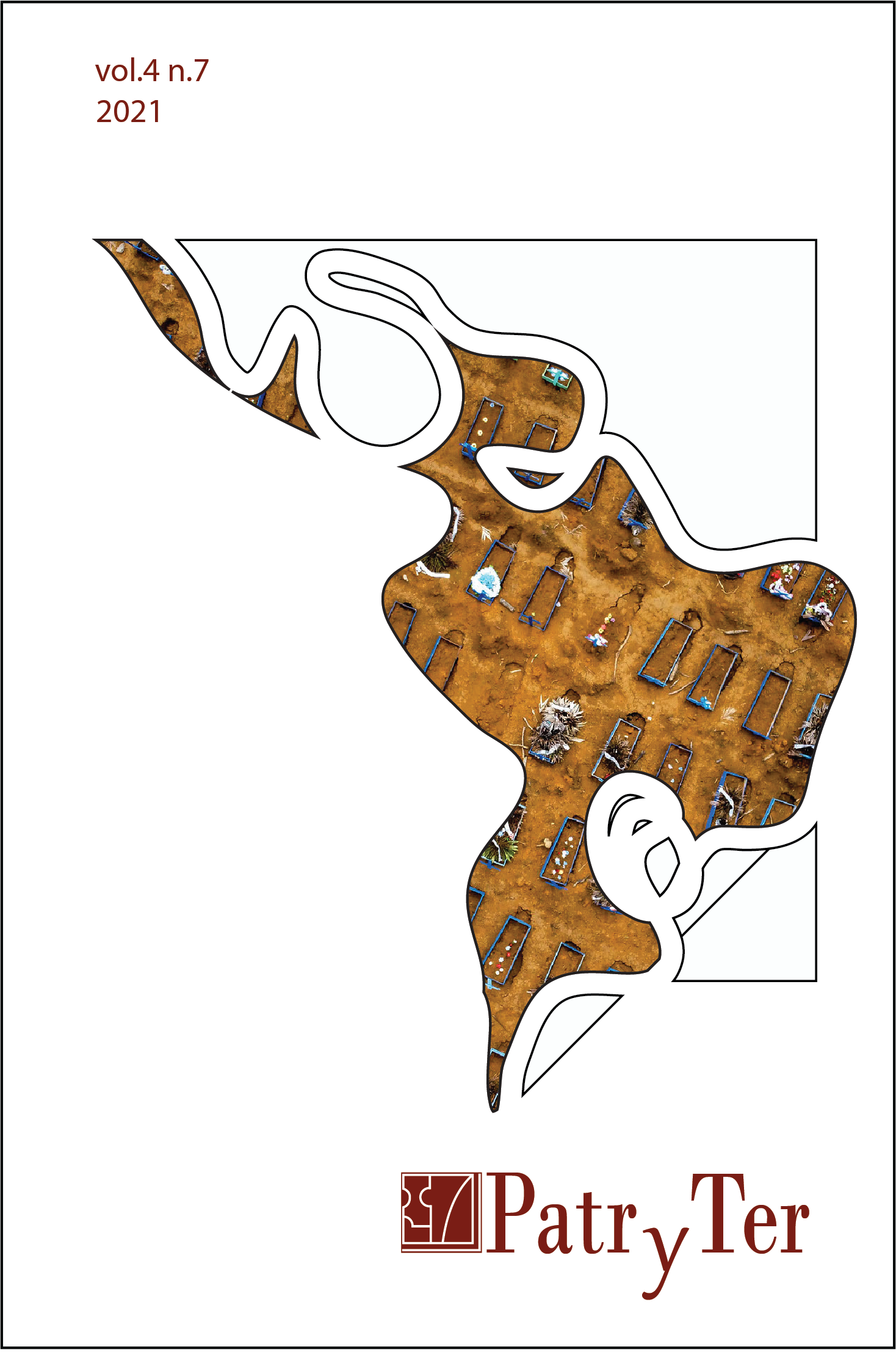Traditional constructive technology transmission in Mexico - heritage in danger
DOI:
https://doi.org/10.26512/patryter.v4i7.25521Keywords:
Technology transmission. traditional architecture. Mexico. heritage.Abstract
Traditional architecture as a theme is exposed from the point of view of traditional constructive technique transmission. The relationship between the material and immaterial heritage, potentiality and vulnerability are also studied. Point of focus is on inadequate actions that do not consider social, cultural and natural possibilities at the historical settlements in Mexico. The work is based on direct observation, surveys, interviews, analysis and participations with the studied communities. It is considered that the practice that has been applied is homogenizing and does not take into account intangible values ”‹”‹of heritage, and neglects ancestral social values ”‹”‹without applying policy and idiosyncrasies of the inhabitants who hold that heritage. It is concluded that there is no future for the traditional architecture without meeting the immaterial values ”‹”‹of its processes.
Downloads
References
Alcalá, F. J. (1980). Relación de Michoacán. Morelia, México: Fimax Publicista.
Azevedo, E. (2008). La vivienda Purépecha. Historia, habitabilidad, tecnología y confort de la vivienda purépecha. Morelia, México: Universidad Michoacana de San Nicolás de Hidalgo/Consejo Nacional de Ciencia y Tecnología.
Azevedo, E., & Torres, L. (2013). Ex convento franciscano de Santa Ana, Tzintzuntzan, Michoacán. En N. Andrade, ArquiMemoria 4, (1ra. Ed.). [CD-ROM]. Bahia: Instituto de Arquitetos do Brasil.
Bedolla, E. (2019). La tradición constructiva, su transformación y permanencia en la memoria colectiva. (Tesis doctoral). Morelia, México: Universidad Michoacana de San Nicolás de Hidalgo.
Chanfón, C. (1994). Arquitectura del Siglo XVI, temas escogidos. México: Universidad Nacional Autónoma de México.
Chanfón, C. (2001). Historia de la Arquitectura y el Urbanismo Mexicanos, Volumen II: El periodo Virreinal, Tomo II: La consolidación de la vida virreinal. México: Universidad Nacional Autónoma de México/Fondo de Cultura Económica.
Franco, M. (2000): Relación de Michoacán, o, Relación de las ceremonias y ritos y población y gobierno de los indios de la Provincia de mechuacán. Zamora, México: El Colegio de Michoacán/Gobierno del Estado de Michoacán.
Guerrero, L. (1994). Arquitectura de Tierra. México: Universidad Autónoma Metropolitana ”“ Azcapotzalco.
Heidegger, M. (1997). El ser y el tiempo. México: Fondo de Cultura Económica.
Jacinto, A. (1998). Mitología y modernización. Zamora, Michoacán: El Colegio de Michoacán/Gobierno del Estado de Michoacán.
Kubler, G. (1982). Arquitectura mexicana del siglo XVI. México: Fondo de Cultura Económica.
Muntañola, J. (2002). Arquitectura, modernidad y conocimiento. Barcelona, España: Arquitectonics Mind, Land & Society/Edicions UPC.
Oros, R. (2017). Los artífices de la piedra y su producción en la ciudad de San Luis Potosí. Estereotomía y Transferencia Cognitiva. (Tesis doctoral). Morelia, México: Universidad Michoacana de San Nicolás de Hidalgo.
Downloads
Published
Issue
Section
License
Copyright (c) 2021 PatryTer

This work is licensed under a Creative Commons Attribution-NonCommercial-NoDerivatives 4.0 International License.
Please be advised that Revista Patryter is licensed under a Creative Commons Attribution-NonCommercial-NoDerivatives 4.0 International License (CC BY-NC-ND 4.0) https://creativecommons.org/licenses/by-nc-nd/4.0/deed.en
Authors who publish in the PatryTer Magazine agree to the following terms:
- Authors retain the copyright and grant the journal the right of first publication, the work being simultaneously licensed under the Creative Commons Attribution-NonCommercial-NoDerivatives 4.0 International License (CC BY-NC-ND 4.0) which allows the sharing of the work with recognition of the authorship of the work and initial publication in this journal.
- The contribution is original and unpublished and is not being evaluated for publication by another journal. When submitting the article, authors should attach as a supplementary document a Letter addressed to the PatryTer's Editor, indicating the academic merits of the submitted work (relevance, originality and origin of the article, that is, from what type of research]. This letter must be signed by all authors.
- Authors assign the copyright of the work that they present to the Editorial Board of PatryTer Magazine, which may serve the article in the PatryTer Magazine and in public and private databases in Brazil and abroad.
- Authors declare that they are fully responsible for the entire contents of the contribution that they submit to the Editorial Board of PatryTer Magazine.
- Authors declare that there is no conflict of interest that could interfere in the impartiality of the scientific papers submitted to the PatryTer Magazine Editorial Board.
- Authors are authorized to take additional contracts separately, for non-exclusive distribution of the version of the work published in this journal (eg publish in institutional repository or as a book chapter), with acknowledgment of authorship and initial publication in this journal.
Authors are allowed and encouraged to publish and distribute their work online (eg in institutional repositories or on their personal page) at any point before or during the editorial process, as this can generate productive changes as well as increase the impact and the citation of the published work (See The Effect of Free Access).



